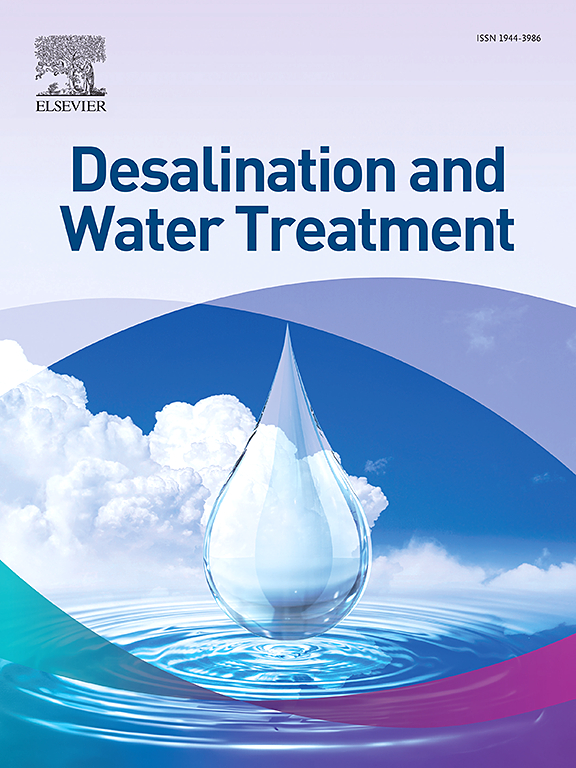Effect of pH and MWCO on textile effluents ultrafiltration by tubular ceramic membranes
IF 1
4区 工程技术
Q4 ENGINEERING, CHEMICAL
引用次数: 9
Abstract
Textile industries are considered as one of the most polluting among all the industrial sectors. Therefore, the disposal of textile effluents without the appropriate treatment entails high environmental risks. Moreover, and due to water shortage situations, industries are becoming aware of the need for investing in innovative treatment technologies for water reclamation, such as membrane filtration. This work studies the performance of three commercial ceramic ultrafiltration membranes treating raw effluents from a textile mill. The effect of both pH and molecular weight cut-off (MWCO) on membrane performance was determined while working on concentration mode. Results showed a noticeable influence of both pH and MWCO on process performance. The best results were obtained for the lowest pH tested (8). At higher pH values, higher fouling rates were achieved. On the other hand, higher fluxes were obtained as MWCO was increased but simultaneously, higher rates of membrane fouling were also observed. Permeate ...pH和MWCO对管状陶瓷膜超滤纺织废水的影响
纺织工业被认为是所有工业部门中污染最严重的行业之一。因此,未经适当处理的纺织废水的处置会带来很高的环境风险。此外,由于水资源短缺的情况,工业正在意识到需要投资于创新的水回收处理技术,如膜过滤。研究了三种工业陶瓷超滤膜处理纺织厂原液的性能。在浓度模式下,研究了pH和分子量切断(MWCO)对膜性能的影响。结果表明,pH和MWCO对工艺性能均有显著影响。pH值越低,结垢率越高(8)。另一方面,随着MWCO的增加,通量增加,但同时膜污染率也增加。渗透……
本文章由计算机程序翻译,如有差异,请以英文原文为准。
求助全文
约1分钟内获得全文
求助全文
来源期刊

Desalination and Water Treatment
工程技术-工程:化工
CiteScore
2.20
自引率
9.10%
发文量
0
审稿时长
5.3 months
期刊介绍:
The journal is dedicated to research and application of desalination technology, environment and energy considerations, integrated water management, water reuse, wastewater and related topics.
 求助内容:
求助内容: 应助结果提醒方式:
应助结果提醒方式:


